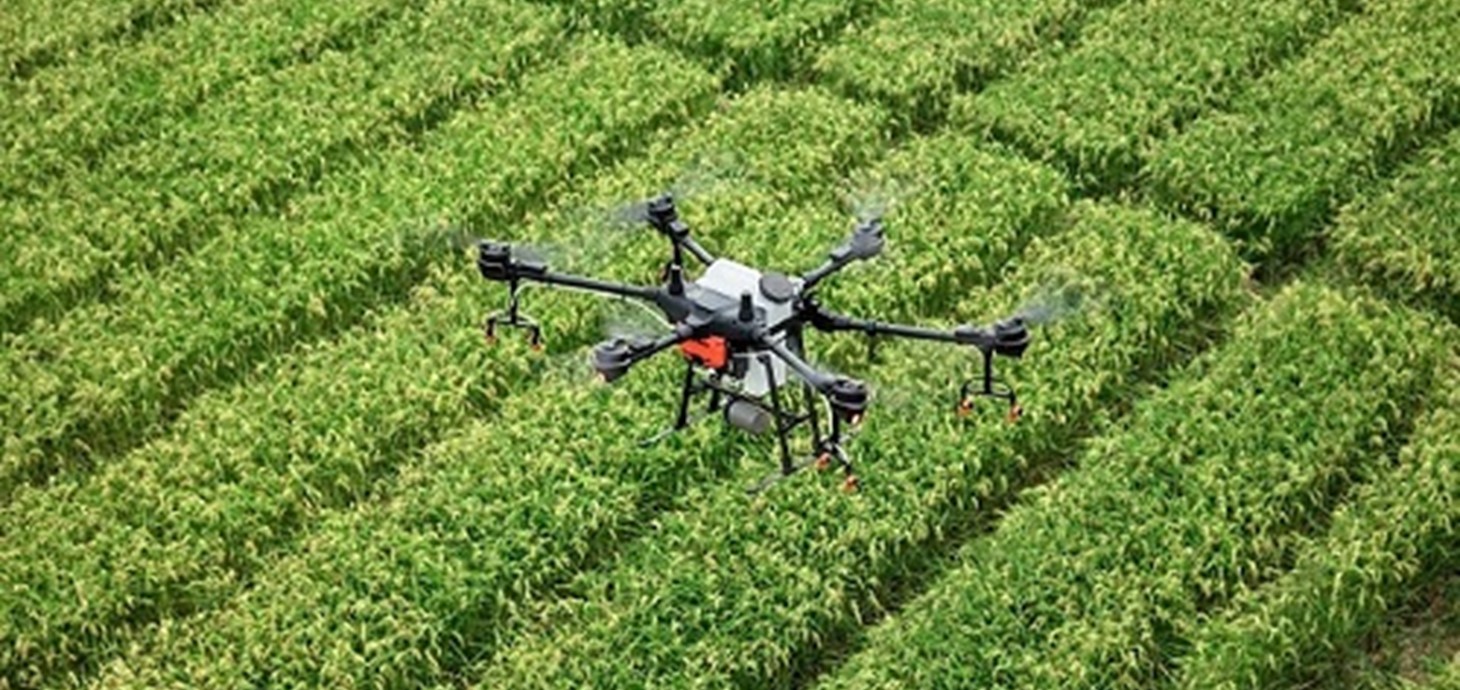
A drone flies over a crop field. Integrated Pest Management aims to cultivate healthy crops while safeguarding agricultural ecosystems from disruption.
Over 200 experts in pest management gathered at Swansea University from 2-4 September for a major conference to encourage innovation in the field.
With the focus on Integrated Pest Management (IPM), the event was jointly organised by IBMA, UK and Swansea University’s Natural Products BioHUB.
The event spotlighted new opportunities in crop protection and the sustainable management of insect vectors that transmit diseases affecting humans and animals. It featured expert speakers who shared cutting-edge research and innovative practices in environmentally friendly pest control methods.
Networking throughout the event provided participants with an opportunity to connect with industry leaders, researchers, and policymakers dedicated to advancing eco-friendly strategies in agriculture.
This symposium not only fostered collaboration but also emphasised the urgent need for sustainable solutions in a rapidly changing environment, ensuring better health outcomes for all species.
Integrated Pest Management (IPM) is grounded in the understanding that environmental issues and food production are intricately linked. Its primary aim is to cultivate healthy crops while safeguarding agricultural ecosystems from disruption. By prioritising natural methods, IPM effectively incorporates a blend of biological, cultural, physical, and chemical strategies that collectively minimise economic costs, health hazards, and ecological damage.
For IPM to achieve its full potential, collaboration among diverse sectors—especially industry stakeholders, academic researchers, and regulatory agencies—is crucial.
The attendees for this year’s symposium included sponsors; Russell IPM, MGK, i2L Research and research publisher Frontiers, alongside more than 70 organisation delegates and representatives hailing from more than 20 universities around the world.
This prestigious event brought together academics, industry leaders, and local government officials, to work together and encourage innovation within the IPM sector. By providing a unique platform for researchers, technologists, and end users, coupled with talks dedicated to exploring funding opportunities, the symposium helped peers to engage and exchange ideas for further research.
The symposium was divided into ten separate sessions across the three-day event;
- Vectors and Nuisance Pests
- Semiochemicals
- Tree Health
- Bee Health and Entomovectoring
- Microbial Biopesticides
- AI and Sensor Applications
- IPM Challenges
- Multi-functional Microbes
- Regulatory Challenges
- Investment and Commercialization Landscape
Dr Farooq Shah of the Natural Products BioHUB said:
“I am incredibly proud of the event’s continued growth and the diverse range of stakeholders it brings together each year. This year’s symposium welcomed experts from industry, academia, civic organizations, and end users like growers, creating a truly interdisciplinary platform.
The presentations and discussions showcased the latest innovations in sustainable food production and environmentally friendly biocontrol options, while offering vital opportunities for networking and collaboration. Hosting this event in Swansea, alongside NP BioHUB and Swansea University, is a proud moment for our city and a milestone that highlights our shared commitment to driving forward sustainable solutions for the future.”
Dr Peter McEwen of PKMC Consultants said:
“This is the year that New IPM really found its place and matured. With growth in attendee numbers, exhibitors, and speakers, combined with new sessions in Forestry and Vector Pests, and excellent cutting-edge scientific contributions, New IPM has developed into a must-attend event. New IPM is a unique combination of academic and business interests, where deals are done, projects are started, and new things are learned.”
This year’s event was sponsored by;
- UK Government
- Swansea Council
- Russell IPM
- Russell Bio Solutions
- MGK
- I2L Research
- Razbio
- Frontiers
- Koppert
- Penderyn
